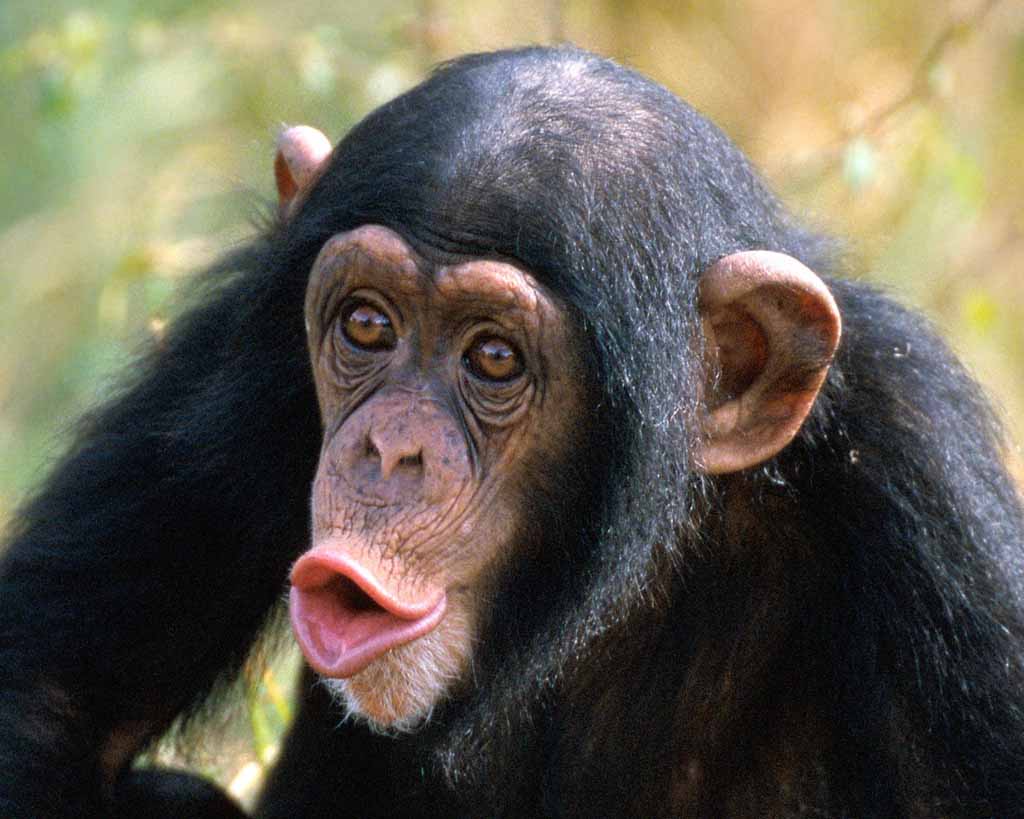
I've given this post the title "Monkey Business" only because neither "Ape Business" nor "Primate Business" work. "Chimpanzee Business" works even worse. However, the post is about a chimpanzee, a brilliant ape named Sarah.

So, in 1978, two researchers named Premack and Woodruff conducted an experiment on our fair maiden Sarah. She'd been trained since a young age to, among other things, operate some simple tools (keys, wicks, hammers, etc) and select the "best" option from an array of choices.
The experiments showed that Sarah could make the correct choice for tool use, even when she wasn't the one using the tools. For example, when shown a video of a human locked in a cage, then presented a set of photographs with a variety of tools, Sarah would choose a key, even though she herself wasn't locked in the cage.
This is a classic Theory of Mind experiment, in fact one of the seminal studies in the field. Primates, it seems, have the ability to perceive the mental states of others. This capability has been demonstrated in children as young as 15 months, which is also pretty amazing.
Most interestingly, it seems that autistic children lack this Theory of Mind mechanism. This fits with their lack of imaginative play, impaired communication, and difficulty with social interaction, at least from a neurophysiological standpoint.

This is all pretty straightforward stuff. However, I have the advantage of taking a class with an expert in the field. Last week, we were guest-lectured by another expert. With that many brilliant minds in the room, a game of oneupmanship was inevitable. The following story was the result:
The videos Sarah was shown were of Sarah's trainers. Some, she liked, and she disliked others. Depending on her feelings towards the trainer in the video, she would either help or not with her tool choice.
Moreover, given the chance, she would mess with the trainer. For example, if the trainer was shivering in a room with an unlit heating lamp, Sarah would choose a lit wick if she liked the trainer; however, if it was an unfavored trainer, Sarah would choose the burnt wick.
In other words, Sarah had the ability to abstract not just what the trainer wants, but also what would surprise the trainer. This is not only a surprising level of cognitive depth, it is proof that chimpanzees are capable of playing practical jokes.

I think that's awesome



1 comment:
there's other ways of describing theory of mind than as a "mechanism."
Too much Alvin Goldman for you, kid.
Wanna come over and do some Sally/Anne tasks?
Post a Comment